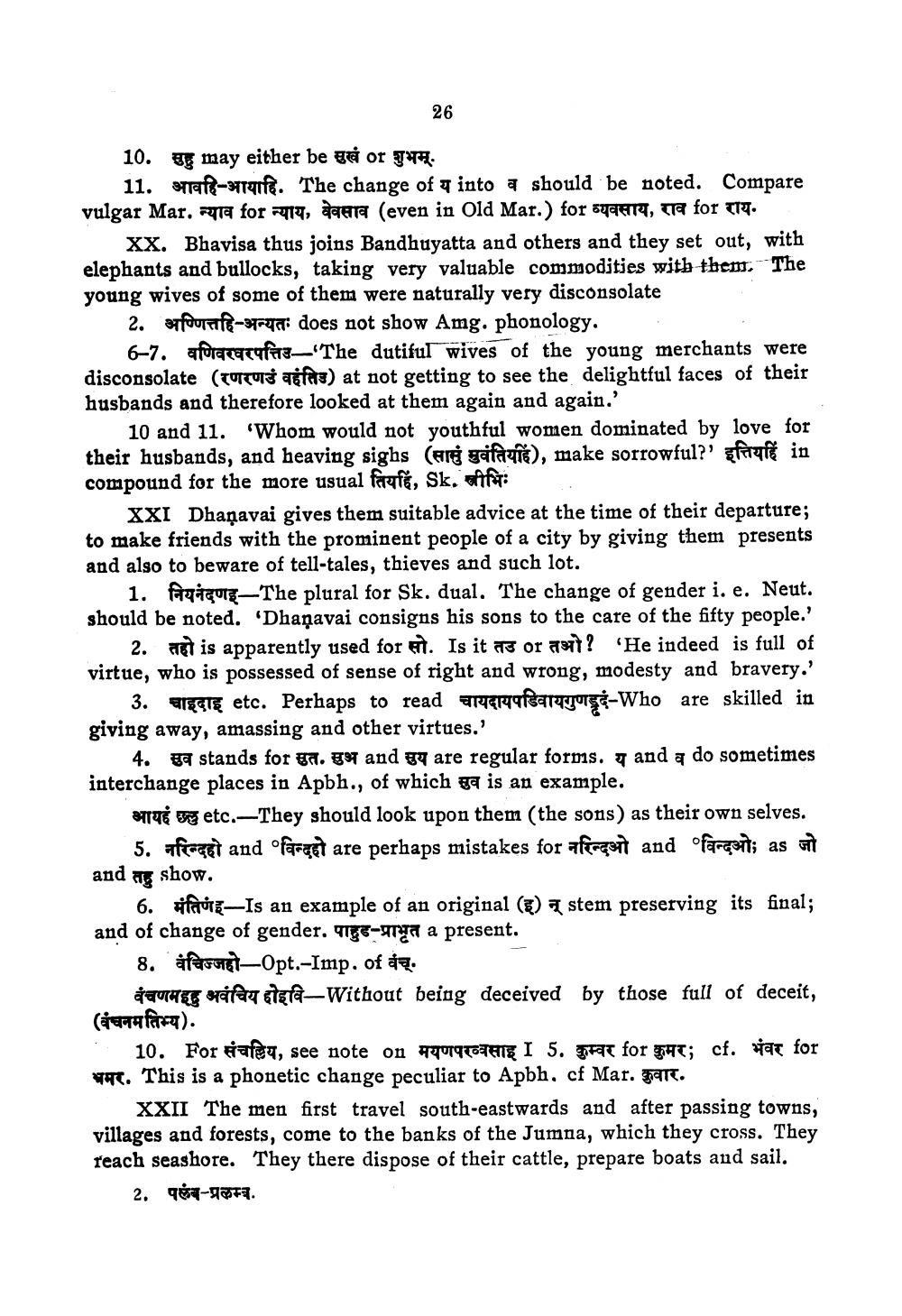________________
26
NE,
4
10. सुहु may either be सुखं or शुभम्.
11. f f . The change of q into a should be noted. Compare vulgar Mar. ta for 72119, agera (even in Old Mar.) for 49614, tra for 774.
XX. Bhavisa thus joins Bandhuyatta and others and they set out, with elephants and bullocks, taking very valuable commodities with them. The young wives of some of them were naturally very disconsolate
2. afourenfe-un does not show Amg. phonology.
6-7. aforcaref13_ The dutiful wives of the young merchants were disconsolate (TOTTUS asfas) at not getting to see the delightful faces of their husbands and therefore looked at them again and again.'
10 and 11. "Whom would not youthful women dominated by love for their husbands, and heaving sighs (Erg geifault), make sorrowful?' forat in compound for the more usual fareft, Sk. ff:
XI Dhaņavai gives them suitable advice at the time of their departure; to make friends with the prominent people of a city by giving them presents and also to beware of tell-tales, thieves and such lot.
1. fagicurg—The plural for Sk. dual. The change of gender i. e. Neut. should be noted. 'Dhaņavai consigns his sons to the care of the fifty people.'
2. Et is apparently used for T. Is it 13 or 377? 'He indeed is full of virtue, who is possessed of sense of right and wrong, modesty and bravery.' ____ 3. चाइदाइ etc. Perhaps to read चायदायपडिवायगुणड्द-Who are skilled in giving away, amassing and other virtues.'
4. 5 stands for 59. 697 and 57 are regular forms. q and a do sometimes interchange places in Apbh., of which ga is an example.
BATTÈ etc.—They should look upon them (the sons) as their own selves. 5. नरिन्दहो and °विन्दहो are perhaps mistakes for नरिन्दओ and °विन्दओ; as जो
and a show.
6. fave-Is an example of an original (%) 7 stem preserving its final; and of change of gender. पाहुड-प्राभूत a present.
8. Fast-Opt.-Imp. of ag.
UUTA man tela-Without being deceived by those full of deceit, (igarafera).
10. For संचल्लिय, see note on मयणपरत्वसाइ I 5. कुम्वर for कुमर; cf. भंवर for WC. This is a phonetic change peculiar to Apbh, cf Mar. $9.
XXII The men first travel south-eastwards and after passing towns, villages and forests, come to the banks of the Jumpa, which they cross. They reach seashore. They there dispose of their cattle, prepare boats and sail.
2. 989-997.




